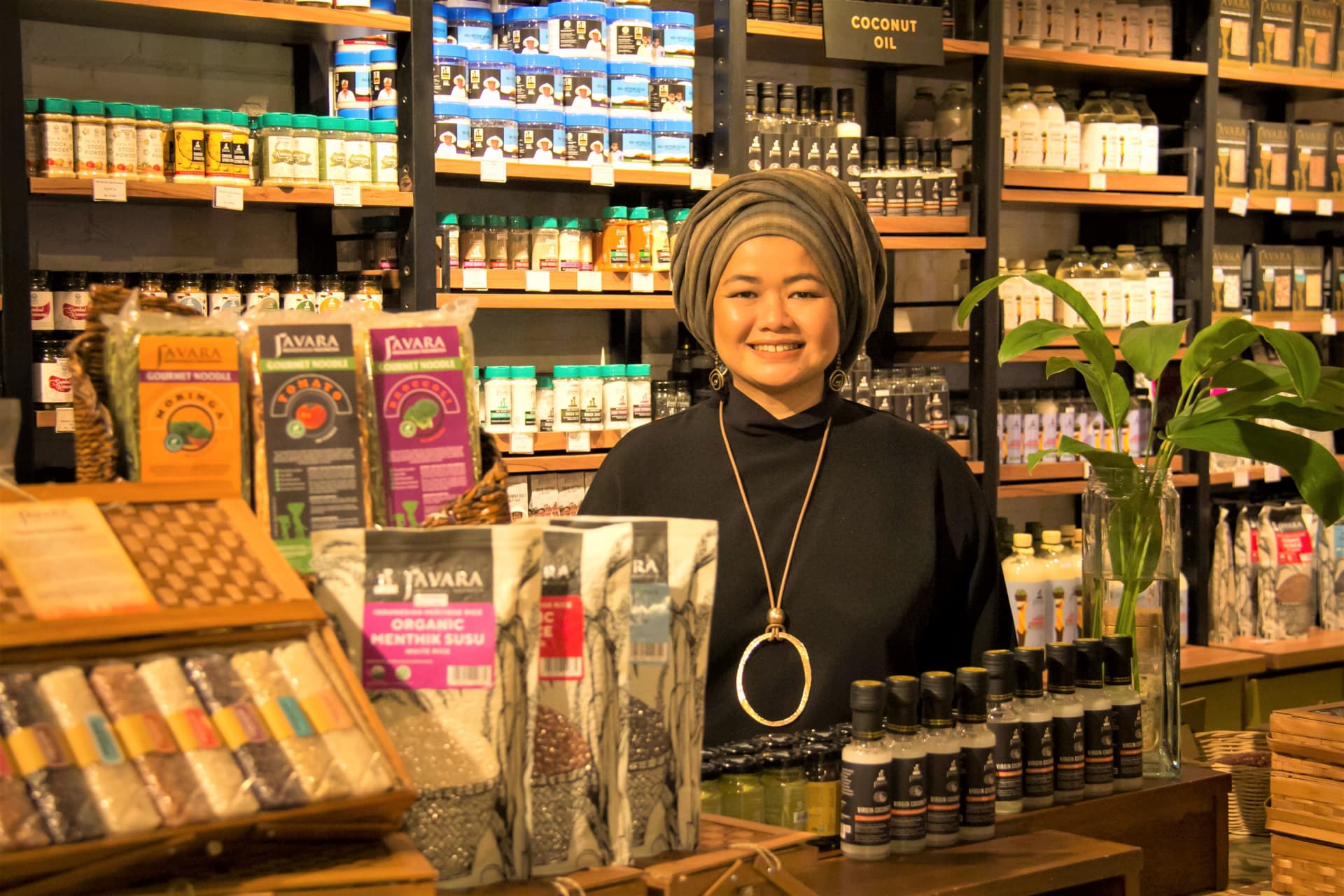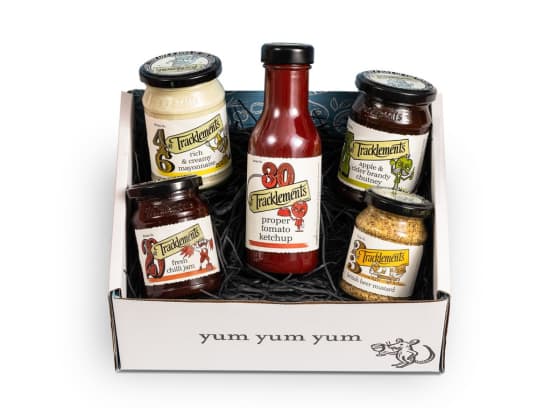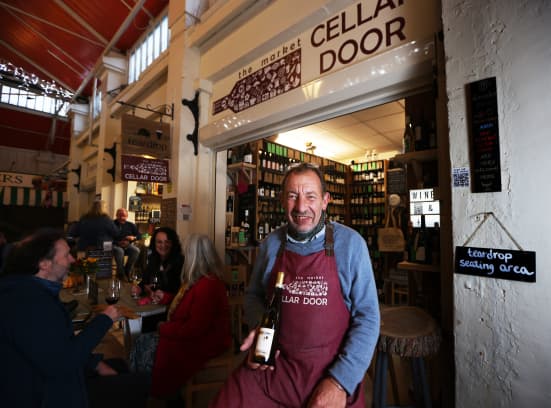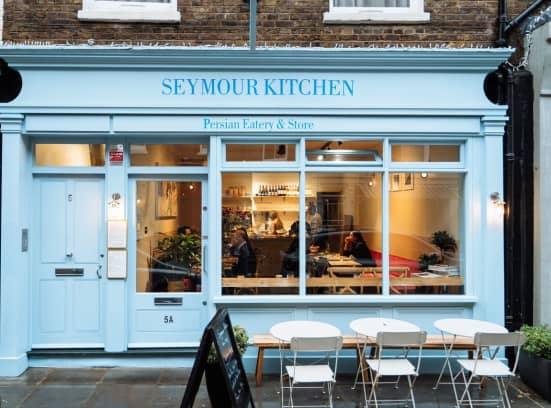In April, the Skoll Forum took place in Oxford, bringing to the city a global group of innovators driving social progress. One of these was Helianti Hilman, Founder of PT Kampung Kearifan Indonesia, and flagship brand Javara which works to showcase Indonesia’s food heritage and bring it to national and international markets. I met up with Helianti in Quod, eager to learn more.
Helianti Hilman studied law at Padjadjaran University and then Kings College London before returning to her homeland of Indonesia, working to support and advise farmers who were facing criminal charges due to unfair contracts, misappropriation or being trapped in working relations which did not offer them a fair deal. As part of this work, she undertook – what she describes as – a “roadshow around farmers groups, listening to their issues, understanding what was in their farms and gardens, cooking with them and eating with them. I love to cook and because of my experience, I knew which market would be good for which ingredient: this should go to Italy, that should go to France.”
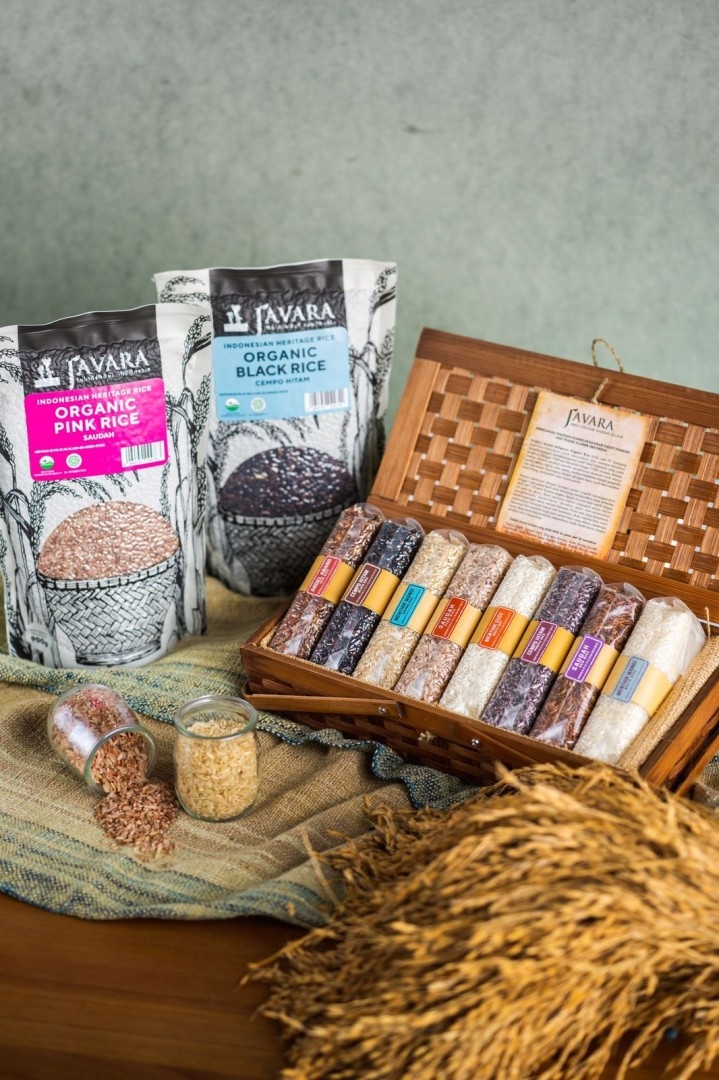 She wanted to do something more constructive, and it was her father who encouraged her: “My father said you can’t solve the problem by being the lawyer, it’s too late by then. These people need to access a sustainable market which is friendly to them”. Encouraged by her parents, Helianti worked up a plan and presented it to her father, an academic specialising in agricultural business. He questioned its longevity; ‘You’ll be bankrupt within two years’. However, her mother said, ‘Don’t listen to your father. If you’re doing it with a good intention you’ll find a way’.
She wanted to do something more constructive, and it was her father who encouraged her: “My father said you can’t solve the problem by being the lawyer, it’s too late by then. These people need to access a sustainable market which is friendly to them”. Encouraged by her parents, Helianti worked up a plan and presented it to her father, an academic specialising in agricultural business. He questioned its longevity; ‘You’ll be bankrupt within two years’. However, her mother said, ‘Don’t listen to your father. If you’re doing it with a good intention you’ll find a way’.
She started up as a foundation, and as her father predicted, failed after two years. “When I tried to pitch to supermarkets, they weren’t interested so my mother said ‘rebrand it as a company, do whatever is needed to make it to the market’. Three months after we changed the format and rebranded we went to the same supermarket, and they gave us a contract to supply 15 stores”.
She explains: “We realised that a lot of initiatives that support the farmer fail become most of the actors are NGOs or foundations and the market doesn’t respond to that; there’s a lack of trust that they can supply sustainably in a business-like manner”.
Passion with a dose of pragmatism, then. “Yes, farmers' groups are the guardians of our food culture but can’t always find their way to market with what they have. Within a year we had so much interest in people joining us – from one farm to farmer groups, and then a village and now 10,000 family farms, indigenous people and food artisans. We started with the domestic market but growth was small because getting licenses to distribute is harder in Indonesia. Plus, the market for organic, gourmet, culture-based products wasn’t there”.
Within a couple of years, Helianti had established markets in Belgium and Switzerland and it was the Swiss government who proved invaluable in taking Javara to the next step. “In 2012 we applied to a programme for small/medium enterprises run by the Swiss government offering a ‘hand holding’ process to businesses in developing countries. They accepted us and grew our market, soon we were servicing 15 countries, mostly in Europe and the US.” More help came from Globus the Swiss gourmet supermarkets who assigned a team to help Helianti comply with their exacting standards. “This made it easier for us as we then knew the formats needed, the technical standards, and all this exposure helped grow the domestic market”. Javara struck lucky when the Executive Chef of the Grand Hyatt spotted one of their products in the supermarket. As a ‘chef activist’ he was interested in supporting local and decided to showcase their ingredients on his menu. “He proved you could get five-star quality ingredients from us”.
So far, so good; global exposure, top chefs, five-star hotels and growing awareness. “Javara became a trendsetter, championing local brands and putting farmers centre stage. We sent them overseas, so they’d get exposure as we wanted to change the whole mindset, making artisan food sexy”. If this was a story, here surely is the happy ending, but no – there’s more.
Helianti told me that her father liked to come with her when she was visiting her farmers and it was he who pointed out “Soon you won’t have any suppliers as they are all my age, not young. 70% of the workforce was over 55, and dad said you need to do something, you have to invest in the youth”. She explained that a survey on the agricultural sector in Indonesia showed that 500,000 farmers were being lost each year.
“I’d ask if their children were involved, and parents would say they didn’t want their kids to face the hardships. Farming was seen as low in social status – no one wants their daughter to marry a farmer. I realised we needed to rebrand farming to make it hip.” So she started up an academy; investing in training to create added value products and businesses and nurturing rural enterprises. “Youth need to have a sense of pride, which is almost more important than income. For example, we had a salt farmer who increased his income from $50 to $500 a month. His product was going to Italy, so it was lucrative, but status is key and there was a stigma in society.”
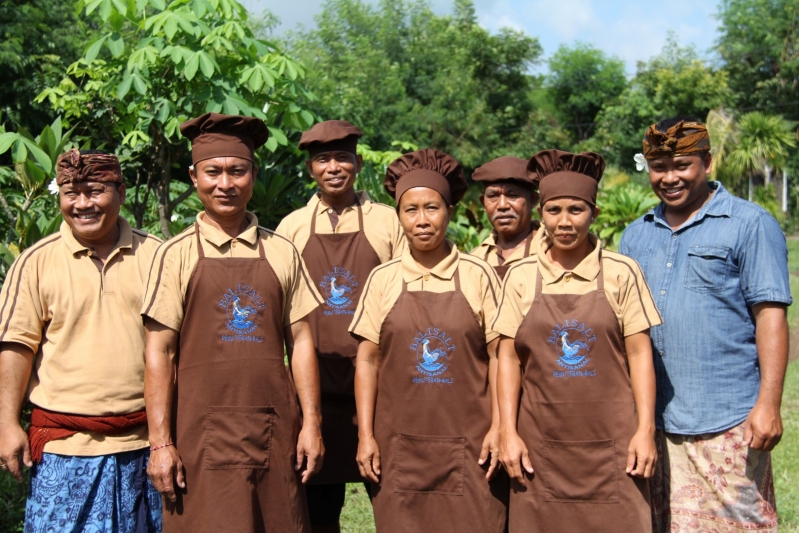 She tells me about the young farmers on Flores Island. “We trained them in how to create winning products and make them a brand. It was so successful that our students started to train their peers. The first batch of farmers we trained now have a cafe on the island. We taught them to roast their coffee and also some barista skills. Now rural youth see it is possible to create a cool business in the rural area. It became easier when we had examples like this, turning local champions into role models.”
She tells me about the young farmers on Flores Island. “We trained them in how to create winning products and make them a brand. It was so successful that our students started to train their peers. The first batch of farmers we trained now have a cafe on the island. We taught them to roast their coffee and also some barista skills. Now rural youth see it is possible to create a cool business in the rural area. It became easier when we had examples like this, turning local champions into role models.”
What the academy offers is essentially a curriculum for personal branding, identifying the assets – food culture, championing biodiversity – and making it appealing for market. “We realised we have to invest in human capital as we need youth coming in. We invest in three main groups: rural youth, women, and indigenous community. When you are very small, your brand has to be very big and in 2015 we formulated the best ways to rebrand the farming profession. We had to create the stage and make food culture key. Our students work in their local markets, they create local products, create employment, support the local economy and all that added value stays within the community.”
I interrupt; Helianti, with all that you’ve achieved have you considered a career in politics? “My mum always said to me, not politics. Now you have liberty and no restrictions. You’re making change. Women want to have flexibility – you don’t want to have restraints where you don’t have control of your time.’ It’s true, I have flexibility – until my son was six he travelled with me. I choose when I work, I couldn’t do that if I was in politics.” I’d love to argue otherwise, but she makes a good point.
Back to the products themselves, and they hit every note. There’s a popular range targeting the average consumer and another of small volume, niche, seasonal products for speciality chefs – “means farmers don’t get stressed about volume”. The emphasis throughout is on healthy as Helianti is determined to prove that healthy food can be just as tasty, and what we may call superfoods are simply part of Indonesia’s cultural heritage. “It’s relevant for global health challenges, its relevant for foodies. Good food must nourish your body. That’s why we created moringa noodles, a daily staple. Moringa noodles are healthier. We export our moringa pasta to a pasta country – Italy. We supply Michelin star chefs in Paris with our spices, it all comes back to our rich food culture: good food, good health, good deed.”
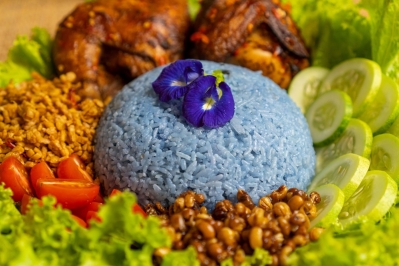 At this point, Helianti asks me if I’ve ever heard of long pepper. Much as I really want to say yes and impress her with my own foodie credentials, I have to admit ignorance. “It is one of the spices we export to Italy. Long pepper predates black pepper and goes back to Roman times. It is indigenous to Indonesia. When we sell to Italy they know it was eaten during the Roman Empire – you see, Indonesian culture has been feeding the world for centuries. Or nutmeg which comes from Banda Island. We’ve been flavouring your Christmas for 1,000s of years. We’re just branding it now, so it is Indonesian”.
At this point, Helianti asks me if I’ve ever heard of long pepper. Much as I really want to say yes and impress her with my own foodie credentials, I have to admit ignorance. “It is one of the spices we export to Italy. Long pepper predates black pepper and goes back to Roman times. It is indigenous to Indonesia. When we sell to Italy they know it was eaten during the Roman Empire – you see, Indonesian culture has been feeding the world for centuries. Or nutmeg which comes from Banda Island. We’ve been flavouring your Christmas for 1,000s of years. We’re just branding it now, so it is Indonesian”.
Clearly, innovation is very important and there is constant demand. “I love to cook, I’ve created products myself, I have all the equipment so I can experiment, and I have an amazing assistant who helps me.” She goes on to give examples. “I co-created our Aromatic Blue Rice with my assistant using blue butterfly pea flour originating from an island in Indonesia. It’s part of our ancient food culture, we call it Nasi Kapuranto, rice of apology or seeking forgiveness. Our food from centuries ago is now very appealing. Colourful, low gluten, alternative sugars, low sodium – Indonesian food has it all.”
So, where do I buy this in the UK? Ah. Here’s the rub. “The UK importer wanted to use their own branding rather than Javara branding which would have disconnected the products from the story and their heritage. Until I find a distributor in the UK which will take that approach we are focusing on other areas. Javara is a celebration of our resilience, our experience, our artisans and our small holders – if we don’t carry that story we lose that connection. Food connects people but industry disrupts it; it becomes faceless, heartless, loses spiritualism, human connection and heart connection, that’s what we want to revive.”
UK importers please take note.

